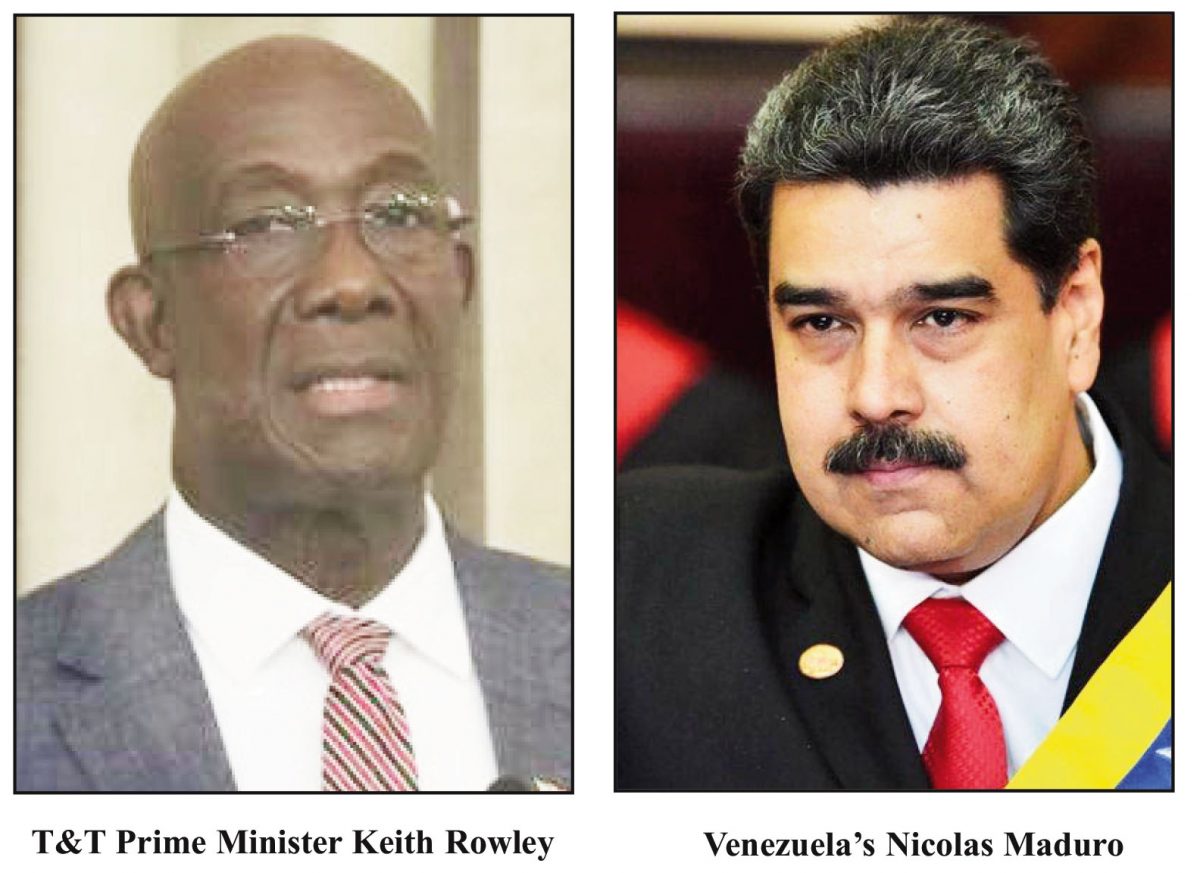Oil–producing Trinidad and Tobago appears set to open a new chapter in petro relations with Venezuela in the wake of the decision taken by the Biden administration in Washington to waive some of the stricter sanctions imposed on Caracas during the Donald Trump presidency.
On Tuesday February 6, Trinidad and Tobago’s Energy Minister Stuart Young left Port of Spain for Caracas at the head of a delegation that met with Venezuela’s Executive Vice President Delcy Rodriguez in what, reportedly, was the first such high-level visit there by officials from the CARICOM member country following the United States’ decision to waive sanctions against that country.
While the meeting between Guyana’s sister CARICOM member state and the country’s neighbour to the west was convened “to deepen strategic relations and boost the cooperation between Venezuela and T&T”, the substantive purpose of the T&T delegation’s visit was almost certainly to probe ways in which Trinidad and Tobago can offer practical help to Venezuela in what is now that country’s push to have its energy industry recover from the ravages of US sanctions.
This much was reflected in a statement which pointed to the fact that “Both countries have historically promoted alliances in the energy sector and as the engine of its economy the economic-commercial relationship between the two countries is framed within the strategic cooperation for the development of projects in the field of hydrocarbons.” A statement loaded with diplomatic euphemisms said that the engagement was taking place “as part of the Bolivarian Peace Diplomacy and the occasion is propitious to review the ties of solidarity, mutual respect and bilateral cooperation between both neighbouring nations.” Venezuela, another media report said, had “ratified its will to strengthen the cooperation and brotherhood agreements with the neighbouring Caribbean republic, for the benefit of both peoples and nations.”
Faced with an economy that has been brutalized by US sanctions over several years, Venezuela continues to rely on allies, primarily those outside the region in pursuit of the recovery of its badly damaged oil industry. Here in the Caribbean Prime Ministers, Keith Rowley of Trinidad and Tobago and Ralph Gonsalves of St. Vincent and the Grenadines, have been Caracas’ staunchest allies. In the wake of the Stuart Young visit, Trinidad and Tobago Prime Minister Keith Rowley told his country’s National Assembly that his government had been in touch with Caracas regarding the Stuart-Young visit and that engagements with Venezuelan functionaries had been arranged.
The T&T Oil Minister’s visit to Caracas has been made possible on account of Washington having given the ‘green light’ to specific countries and companies to resume taking crude oil from Venezuela on condition that no funds are paid to the Maduro government, a position that has been condemned by President Maduro. Port of Spain, reportedly, has steered clear of commenting on the ‘exemptions’ granted by Washington and the stipulations that attend those ‘exemptions.’
Under the terms and conditions of the licence granted by Washington, Trinidad and Tobago will be allowed to resume doing business with Venezuela’s considerably depleted state-run oil company PDVSA while the returns accruing to Caracas arising out of those transactions are not payable to the authorities representing the Maduro administration, a circumstance which President Maduro has reportedly described as “colonialism.”
Washington’s sanctions do not gainsay the significance of Venezuela’s oil and gas reserves on the wider global energy dynamic. PDVSA’s reported find of gas reserves amounting to around 4.2 trillion cubic feet (TCF) in the Dragon field, on the Venezuelan side of its maritime border with Trinidad opens the door for cooperation between the two countries. The exploitation of this world class find can hardly be ruled out in the context of the broader global energy dynamic.






